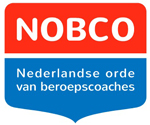What is a Burn out?
Burn out is the result of a long-term imbalance in at least two of the three human pillars work, private and personality. Often a complex interplay of factors and circumstances, which you don't always have an influence on. According to the World Health Organization (WHO), Burn out is a work-related illness and not a mental illness. You do not have a mental disorder, because of you have hit Burn out. You are just not yourself anymore and find it difficult to think clearly. Our experience often shows a combination of high workload and private problems, which makes someone exhausted.
You may have little influence on the causes, but you can take control of your recovery. Or prevent you from getting into a Burn out. Don't get tanglet in a variety of medical “solutions" such as antidepressants and sleeping agents.
As mentioned, Burn out is a work-related condition. There is therefore a large part of the solution. Often in combination with addressing the various private problems.
By taking control of yourself, recovery (or prevention) can take place much more efficiently, faster, more efficiently and more personally. Make your own choice.
The signals
For the signals of a (threatening) burn out, we are following up what is included in the registration directive of the Dutch Center for Occupational Diseases.
The phenomena are roughly divided into mental complaints, such as:
- loss of concentration,
- emotional instability
- forgetfulness,
- a short temper,
- poor functioning socially and in the workplace
In addition, there are often physical complaints, such as:
- lack of sleep,
- extreme fatigue,
- headache,
- neck problems,
- lack of drive,
- other physical discomfort.
A combination of the factors above leads to overtension, when various stress-causing factors are brought to work. The above-mentioned registration directive combines over-tension for more than 6 months, exhaustion phenomena and a cynical attitude, to burn out.
Recovery of a Burn out
First of all, an expert, such as the general practitioner or the company doctor, should find that no other (personality) disorder is the cause of the complaints.
In order to achieve a sustainable and rapid recovery of the Burn out, it is important to follow a number of steps carefully and under guidance.
The reason
What signals occur and how to explain them. For example, change in private or work. Remember, the cause may be further in the past. People who are sensitive to Burn out tend to actively respond to problems. They go that extra mile and take work at home. Feel responsible and want to perform. They think they can get everything done. Often at the expense of hobbies, relationships and other moments of relaxation. And they often keep up for a long time, until something goes wrong or there is a private problem. Then there is a burn out with loss of control, the short temper and finally the collapse.
Accept and work on a solution
The constant fight against these phenomena costs a lot of energy. That’s why we need to find a solution. Preferably for all the causes of the above signals. The central question is always whether something needs to be changed or accepted. This will vary considerably from person to person. For example, one likes and can handle responsibilities. The other one gets them, but it becomes very unfortunate.
The balance
Because of the Burn out, someone's load capacity has fallen considerably. In order to function normally again, we need to work hard to increase this. At the same time, the task and function load should be adjusted to the level of the person. This may be temporary. If this is not handled carefully, there will be an imbalance and someone will soon fall back. Do not forget what the load is in the private situation. All aspects count, including the mental burden, in determining what one can handle. For example, staying angry with an employer or an ex-partner, are all factors that affect.
Every downside…….
Negative signals can also be a reason to look at things in a different way. The legendary Johan Cruijff knew it already: “Every disadvantage has its advantage". By wondering whether a particular task or function is appropriate new insights emerge. This is also an important role for the employer. Is he or she willing to think about changes or adjustments? A positive attitude will also have a positive effect on the willingness of the employee to cooperate in this.
Accountability
One of the signals is a cynical attitude toward work and/or the employer. This step focuses on the fact that a contract of employment has two parties responsible. It’s clear to the employee that he or she is responsible for all decisions about his or her (working) life. Everything with respect and trust to others, so also to the employer. Conversely, of course, this also applies to employers, managers and colleagues. A Burn out is a very convenient time to re-establish everyone's responsibilities.
Social support
A common signal is the lack of social support from colleagues and/or managers. We need to look out, which has created this feeling. Changes are often involved, such as reorganization or a company merger. Don't forget the impact of entering flexible workplaces or even worse “the office garden". For one a blessing, for the other a disaster. A workplace survey will clearly identify these problems and will also provide recommendations to prevent future problems.
Result
After the signals have been mapped and appropriate solutions have been found, someone with new energy, will make his or her contribution again. Due to the real attention to the problems, often with more work pleasure, more social behavior, more productive and more creative. We call it the “benefits of a Burn out". A good recovery will make someone stronger.





